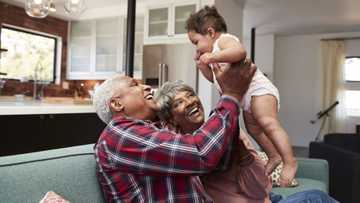How Joint Custody Jeopardises a Child’s Well-Being After Divorce
The alarmingly high divorce rate in South Africa has led to an increasingly high number of children growing up without one biological parent. Traditionally, the court system’s solution to this problem is awarding joint residence to both parents. But is it always beneficial to the children?

Source: Getty Images
A national statistical survey by Stats SA shows that 55.9% of divorced couples in 2019 had children under 18 years old. Since almost 40% of South African families have two or more children, quite a few experience the negative consequences of divorce. Joint residence order or not, many children end up being raised by other family members. Most often, grandparents in South Africa take care of their grandchildren after a divorce.
Effects of divorce on children
According to the common tribal mentality, the more children the spouses have, the richer they would become in the future when their offspring grow up and start helping their parents financially. However, considering children as an investment, many parents often forget that each child’s share of attention and care decreases as the family expands. In divorce, kids from large families are often left alone with their fears and difficulties.
“Divorce in many cases may be more difficult for children than adults owing to the fact that children lose a fundamental part of their development – the family structure,” writes clinical psychologist Nicole Jane Lefson in her work about the effects of parental divorce on adolescent South African girls.
She mentions a few behavioural disorders that children display during their parents’ divorce. The most formidable are anger, embarrassment, fear of intimacy and even withdrawal from family and friends.
Divorce also has long-term effects, not visible at present. “Disillusionment, anger and fear may shape children’s own adult mate selection processes as well as the parenting and interactional patterns of the next generation,” writes Craig A Everett, author of Children of Divorce: Developmental and Clinical Issues.
How do South African courts deal with child custody issues?
South African courts make custody decisions based on the child’s best interests. They believe that frequent contact with both parents is more beneficial than a limited one or no contact at all. For this reason, joint custody is a sort of default arrangement in many custody cases.
Parents who agree to raise their children in this way conclude a parenting plan and develop a residential schedule. Those who want a primary residence order have to approach the Children’s Court or the High Court. In sole custody, young kids and girls of any age usually stay with their mother, while boys are likely to be left with the father.
When is sole custody a wiser option?
An assumption that children do better if they have continual contact with both parents after divorce is only valid in some cases. For instance, if one of the parents poses a potential danger to a child’s physical or mental health, sole care is the only reasonable choice.
“Sole residential and legal custody is not easy to obtain if both parents decide to fight for the child,” says Andriy Bogdanov, CEO of OnlineDivorce.com. “To compel a judge that sole custody is in the child’s best interests, a person needs to provide proof of possible dangers to the child’s well-being.”
The most apparent circumstances that could contribute to sole custody are family violence and the mental illness of one of the parents. Other arguments against joint parental care are:
- Substance abuse (alcohol and drugs);
- Neglect, which manifests in failure to provide timely medical care, food, clothing and protection;
- Desertion, or abandonment, which indicates a parent’s lack of interest in their child;
- Imprisonment of one parent.
Disadvantages of joint custody
1. Higher incidence of conflict between ex-spouses
Joint custody means frequent contact between the ex-spouses. The conflicts that couples had in the past could exacerbate after divorce. “Children’s repeated exposure to destructive inter-parental conflict can undermine children’s capacity to regulate negative feelings of anger, sadness, or fear,” explains Jenny Reynolds, a family relationships expert. The fewer disputes kids witness, the easier they adjust to the new circumstances.
2. Less freedom in geographical mobility
“Joint custody can become a major problem when one parent is transferred or takes a job far away, and the other is unable or unwilling to move,” says a professor of law at Washburn University, Linda D Elrod. To solve the problem, the parents would have to go to court and adjust the parenting plan.
3. Difficulty in agreeing on decisions about the child
Making joint legal decisions is challenging if the parents have different opinions. Often, post-divorce resentment and anger outweigh their sound judgment. Instead of acting in the child’s best interests, ex-spouses focus on winning an argument.
4. Less stability
In a joint care arrangement, a child must constantly move from one parent to another. This could be confusing for the child. Such instability is especially difficult for children with attention deficit disorders. Poor adaptive skills make it difficult for them to cope with divorce situations, let alone adjusting to constantly changing environments.
Final thoughts
Joint custody does not always make sense for the child’s health and well-being. Sometimes, sole parenting is a necessary measure to provide children
Source: Briefly News





